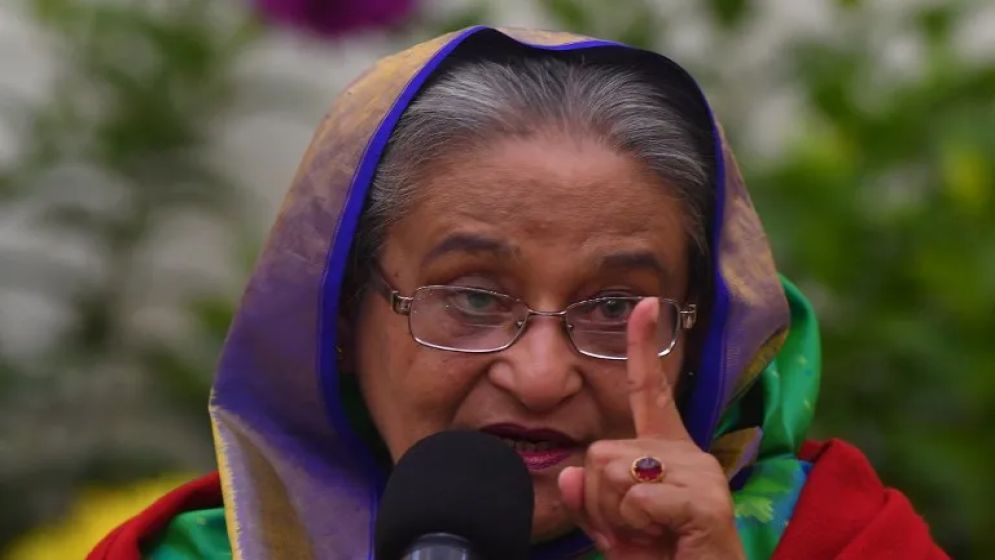
On Monday, Bangladesh's long-serving dictator, Sheikh Hasina, was ousted by a popular uprising.
After serving as prime minister since 2009, Hasina was compelled to resign and flee the country as hundreds of thousands defied a curfew and marched toward Dhaka in the midst of a persistent morning drizzle.
The capital, which had been plagued by violence and death over the past three weeks, erupted in jubilant celebrations when the army chief, General Waker-Uz-Zaman, confirmed Hasina’s resignation.
He also announced that a new interim government would be established shortly.
Millions flooded the streets, causing traffic chaos across the capital well into the evening.
Many struggled to grasp that Hasina's unchallenged grip on power and the Awami League's storied political stronghold could be toppled by a three-week campaign led by students.
Celebrants surged into the prime minister's residence, office, and the parliament, scavenging for souvenirs.
They also vandalized Awami League offices and targeted the homes of senior ministers nationwide.
Even as thousands gathered at Shahbagh from early afternoon, there were reports of clashes between protesters and police on the outskirts of Dhaka and across Bangladesh.
This unrest occurred in the power vacuum left by Hasina's abrupt departure, which was marked by the absence of any official statement or press release.
In light of the recent weeks' violence and numerous deaths, the army chief assured the public that justice would be served for all victims.
General Waker urged everyone to stay calm and emphasized collective efforts toward improving the situation.
"Together, we aim to move towards a better future," he told the media. "I am taking full responsibility."
He acknowledged the country's suffering, economic impact, and loss of life, calling for an end to the violence.
On his way to the presidential palace, Bangabhaban, General Waker was met with enthusiastic crowds.
Hundreds surrounded his convoy, with some even riding on his vehicle as it slowly passed through the sea of supporters, who welcomed him as a hero.
While he announced the formation of an interim government, there were no further details about the government's structure or the transition process until later in the evening, when the president convened meetings with military leaders, political parties, and civil society representatives.
The Awami League was not included in these discussions.
A press release from Bangabhaban announced that the meeting had reached a unanimous decision to immediately release BNP chief and former prime minister Khaleda Zia from prison.
Additionally, the meeting resolved to establish an interim government right away and called on everyone to exercise patience and tolerance. It was decided that the military would enforce law and order rigorously to prevent any lawlessness.
The meeting also agreed to release all individuals detained during the anti-quota protests.

